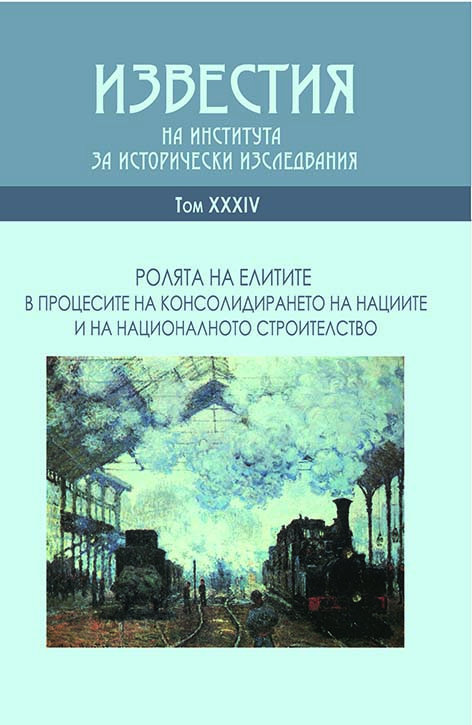Права и компетенции на българските държавни институции Обикновено народно събрание и Велико народно събрание (1879–1947 г.) и тяхната роля за консолидиране на нацията
Rights and Competences of the Ordinary National Assembly and the Grand National Assembly as Bulgarian State Institutions (1879–1947) and Their Role in the Consolidation of the Nation
Author(s): Yordanka GeshevaSubject(s): History, Political history, Modern Age, Recent History (1900 till today), Special Historiographies:, 19th Century, Pre-WW I & WW I (1900 -1919), Period(s) of Nation Building, Between Berlin Congress and WW I
Published by: Институт за исторически изследвания - Българска академия на науките
Keywords: Ordinary National Assembly; Grand National Assembly; Tarnovo Constitution; rights and competences
Summary/Abstract: The author describes the rights and competences of the Ordinary and Grand National Assemblies, as defined by the Tarnovo Constitution from 1879. The author focuses on the relationship between Ordinary National Assembly and the prince institution; the rights and obligations of the Head of State for the establishment and dismissal of governments. Here are also described the possible variants in case of vote of non-confidence in the government by the parliament and the options for the Head of State. The author discusses the political practice in Bulgaria, electoral laws, voting rights for citizens, and the imposed restrictions. The place and role of the two types of Assembly in the Bulgarian political life are of high importance, as well is their ability to assert their independence in relation to the other institutions and the strong personalities of the day.
Journal: Известия на Института за исторически изследвания
- Issue Year: 34/2017
- Issue No: 1
- Page Range: 276-288
- Page Count: 13
- Language: Bulgarian
- Content File-PDF

